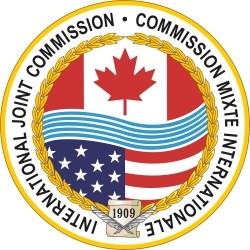NEWS RELEASES
TONY MARTIN, MP
INTERNATIONAL JOINT COMMISSION
************************* Martin credits residents, political pressure for IJC decision to speed up water loss study
OTTAWA – Sault MP Tony Martin has welcomed the International Joint Commission’s decision to speed up its investigation into low water levels in the Great Lakes, crediting area residents and political pressure.
The IJC says it now expects to be able to verify or disprove the allegations of excess water loss by February, 2009 - a full year ahead of schedule.
“This is a good decision taken by the IJC as people felt 2010 was definitely too long,” Martin said. “I believe it is in direct response to public and political pressure, including hearing from the public, as I did from Sault and Algoma residents along Lake Superior and Lake Huron.
“I organized and attended public forums on both sides of the border. The media including CBC’s The National publicized the issue. All the letters and e-mails have made a difference and hopefully we will get to the bottom of this before we see too much of the bottom of these lakes with all this disappearing water.”
Preliminary information on the outflow problem is expected next year.
While scientists cite climate change and drought explanations, residents speaking at the forums cited stories of water diversion to U.S. states and dredging of the St. Clair River near Sarnia.
The IJC is dealing both with the reports of alleged excessive outflows from the St. Clair River and record low levels on Lake Superior.
The IJC has decided to leave unchanged for now the current plan governing the amount of water being released through the control locks at Sault Ste. Marie.
It’s been noted any action to help Lake Superior’s levels can exacerbate low-water problems on Lakes Huron and Michigan.
************************* St. Clair River portion of IJC Upper Lakes study to be expedited OTTAWA, CANADA – The International Joint Commission announces that its International Upper Great Lakes Study Board will expedite its study of the St. Clair River to determine whether there are ongoing channel changes leading to a potential increased conveyance capacity of the channel and whether changes in water levels are the result of natural or human influences.
The study will produce a draft report a full year ahead of schedule by February, 2009, with interim progress reports throughout 2008.
A peer-reviewed final report on the St. Clair River is expected in June, 2009.
Board co-chairs Gene Stakhiv and Ted Yuzyk presented the revised plans in Ottawa this past week, that they drafted at the commission’s request.
“The commission understands the urgency of getting answers based on sound science as soon as possible,” said Herb Gray, chair of the Canadian Section of the Commission. “The study board is to be commended for maintaining the integrity of the scientific process while responding to the need to expedite the study.”
“Much work is already under way toward answering critical questions about the St. Clair River,” said Irene Brooks, acting chair of the United States Section of the Commission. “Answers to these questions will let us increase our focus on the full range of factors that affect water levels and on how regulation of Lake Superior might be improved to take into consideration changing interests and changing climate.”
Since beginning its field work in April, the study has already commenced cross-sectional surveys of the St Clair River, bed material sampling, videoing of the river bed and reconnaissance and negotiations for a hydrometric gauging station on the St Clair River.
The commission had also requested that its International Lake Superior Board of Control investigate options to deviate from the existing regulation plan at the outflow between Sault Ontario and Sault Michigan in light of record low water levels.
The commissions agreed with the recommendation of the board co-chairs that no deviation from the current plan is advisable.
*************************
